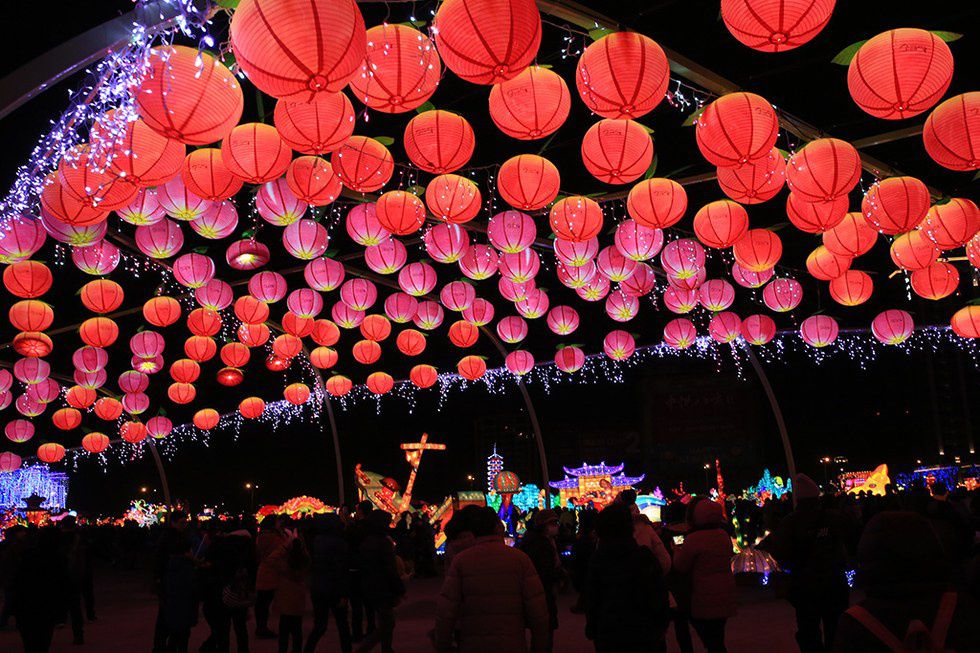China is a nation of many holidays, but the Lunar New Year has remained the most important holiday for thousands of years. Unlike our Western New Year, which is based on a solar calendar, the Chinese New Year is based on the traditional lunisolar calendar whose date indicates both the moon phase and the time of the solar year.
The Chinese New Year celebration starts off on 除夕, which is New Year's Eve. Since it is a time for a family reunion, people usually have a huge and elaborate dinner on New Year's Eve at either home or a fancy restaurant. Festivals will last for 15 days and people usually watch some traditional Chinese shows, launch fireworks/firecrackers, do some shopping, and visit relatives and friends. This festival may be highlighted with a religious ceremony to celebrate ancestors, gods, and heaven. During this time, working professionals in China will normally have a week off for this holiday. Children will receive red envelopes/packets of money ranging from 1 to 1000 yuan.
It is unclear exactly when the New Year celebration started, but people generally say it was during the Shang Dynasty (1766 BC - 1122 BC). According to legends and myths, the beginning of the New Year started with a fight against a mythical beast called 年 ("year"). The 年 looked like an ox with a lion head and inhabits the sea. On New Year's Eve, it would come out and harm people, animals, and properties. After finding out that 年 is scared of loud sounds, the color red, and fire, people formed the habit of posting the red Dui Lian (words of deep meaning written on red paper) in front of their house, hanging red lanterns, and setting off fireworks/firecrackers for self-protection.
Northern China and southern China are different in many ways, and one of those differences have to do with the food they prepare for the New Year. The northern part of China would often make dumplings whereas the southern side would make 年糕 (New Year cake) which is made out of glutinous rice flour and sugar.
The New Year would end on the 15th day with the Lantern Festival, which is also the first full moon night in the Chinese calendar, marking the return of Spring and symbolizing the reunion of family. People will eat 汤圆 (ball-shaped dumplings with peanuts, sugar, bean paste, or jujube paste) and watch lanterns and lion dances.




















